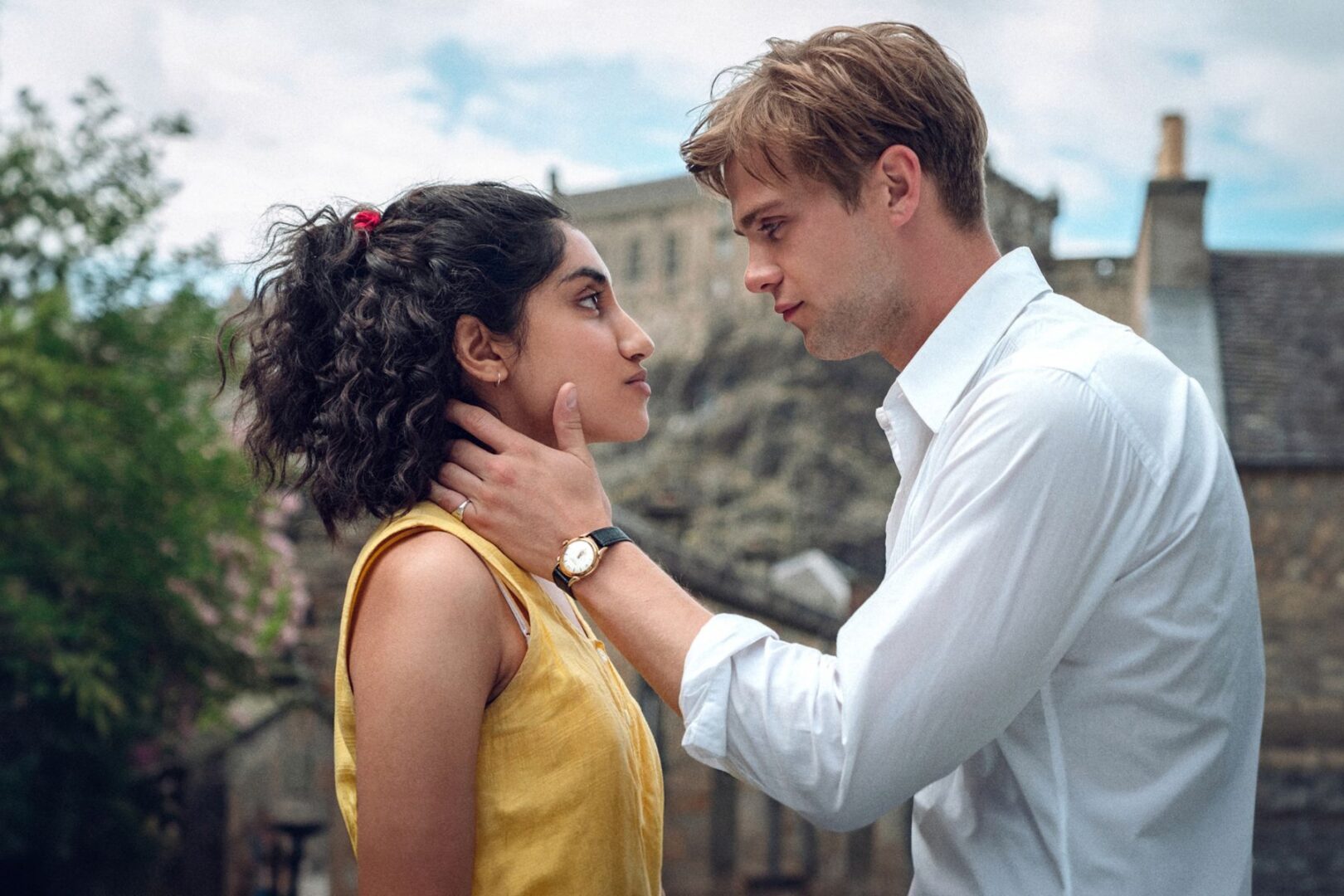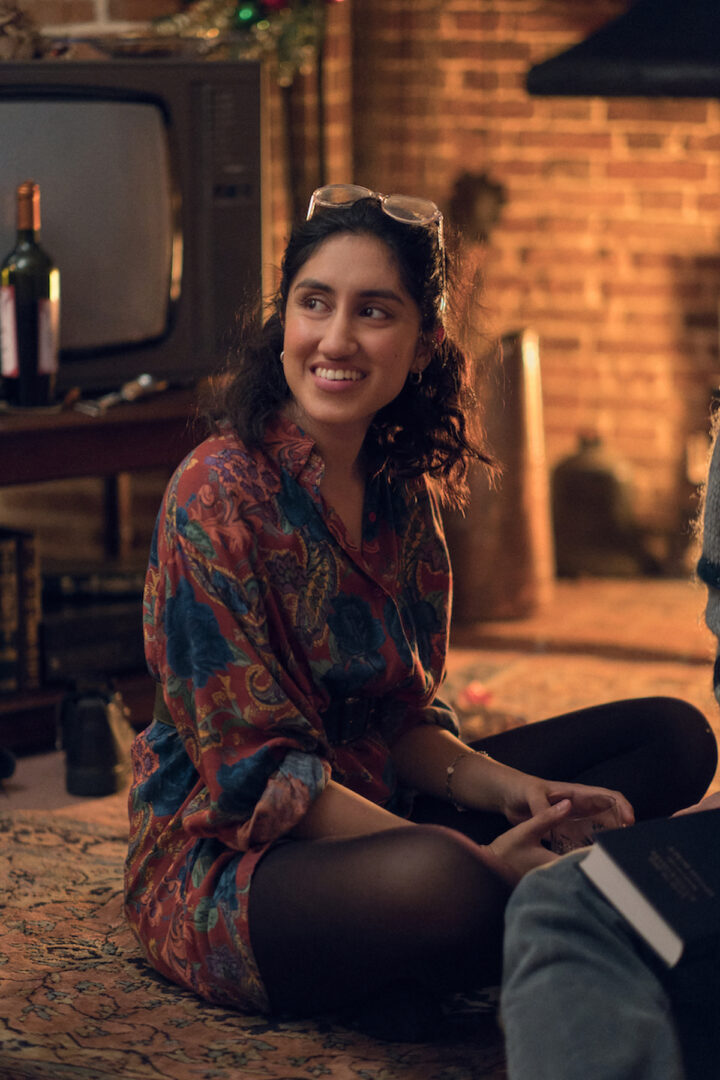
Netflix’s “One Day” has quickly become one of the platform’s most popular shows since its release on Feb. 8. The 14-episode series based on the 2009 novel by David Nicholls follows the lives of Emma Morley (played by Ambika Mod) and Dexter Mayhew (played by Leo Woodall) over two decades.
Each episode moves forward a year on the same day, beginning with the day the two met, at their college graduation on July 15, 1988, in Edinburgh.
[Read Related:‘Mix the Shade to Find Where We Belong’: Sarayu Blue in Amazon Prime’s ‘Expats’]
While the two are starkly different, their friendship persists and eventually becomes what viewers had been yearning for all along: a love story. But as spoilers across the internet may tell you this isn’t your typical romcom. “One Day” is going to leave you devastated — like the floor underneath you has been ripped out devastated!
You better have the tissue box ready, or watch it alongside someone you feel comfortable ugly crying with, because this series is quite literally a tear-jerker.
The story begins with a failed one-night stand, during which Emma and Dexter spend the night talking about their futures instead of having sex.
After spending the first day of their “properly adult lives” together — as Emma puts it — the pair become close friends despite being polar opposites; Emma, a sarcastic idealist, and Dexter, a charming golden boy.
As the series continues, we witness their lives unfold; their struggles, their journeys different from each other. Emma struggles to make ends meet and suffers from imposter syndrome while Dexter struggles with fandom and juggling which woman he wants to sleep with.
The tables eventually turn, with Emma becoming successful and Dex being self-destructive.
As we watch the two grow, we share laughs, cries, and most of all the frustration that the two cannot see how much they love and need one another.

But while the storyline of “One Day” is a noteworthy rollercoaster, this adaptation stands out even more than others because of its casting. The first adaptation of the novel was a 2011 movie starring Hollywood star Anne Hathaway, whom Mod is arguably the opposite of.
While Mod didn’t believe she was “stepping into Anne Hathaway’s shoes,” she told Netflix, many others have compared her character as such. This brings to fore the idea of representation and how Mod made Emma into her own.
“‘One Day’ was just by far and away the biggest and best opportunity to follow and improve on what I had just done,” Mod told Elle in February 2024. “As a young woman of color, there’s just not that many roles out there. I was feeling quite disappointed by a lot of things I was auditioning for. I also just remembered how much I f**king loved the book and how much it meant to me when I was young; how much the story stuck with me. I’m hesitant to call it a romance or a love story, but I think it’s one of the best love stories out there.”

Mod’s role in “One Day” reminds us that South Asians and South Asian identity are not defined by their culture and the widespread stereotypes associated with it and hence, do not need to play roles that put them in boxes. Emma’s identity is brought up only once in the entire series, when Dexter questions why she didn’t sleep with him and asks whether it was because of a religious reason.
While this minute-long encounter may have gone over the heads of other viewers, South Asians like myself may be quick to remember it because it was the only time Emma mentioned she is half-Hindu on screen. While representation of one’s identity is important and matters, it was refreshing to see that for once a mainstream platform did not emphasize a person of color’s religious identity or cultural background as the basis of their entire role in a production.
I am all for seeing cultural identities highlighted on the main screen, but when that focus is all a character has, without any other development, it is exhausting. We are more than our cultural identity and the reality is South Asians exist across the globe in every sense and form. Real representation is not being tokenized for what we identify as but being featured on screen just as anyone else.
If it is not normal to signal out one for being white, why is it normal to signal one out for being Brown? Doing so only propagates discrimination toward, and preconceived notions for, people of colour, isolating them from the larger society.

Seeing Mod, someone who looks like me, not only star in a major role in a Netflix production but also play a character that would historically be played by a white woman felt like a major win. It felt natural because the world and South Asians are diverse.
Over the years we’ve gone from seeing South Asians being forced to play stereotypical roles to groundbreaking leads. We’ve seen South Asian languages spoken on screen naturally, not just in ‘foreign countries,’ but transitioned from English like it is the norm. Now, seeing South Asians no longer considered the “other,” and as integral parts of society, as attractive to other races — as they are — feels much like a relief; it’s been a long time coming.
[Read Related: Are you Laughing With us or at us? South Asian Representation in Sitcoms]
South Asian actors should not just be confined to what the broader worldview is ‘of being a South Asian’. We are not defined by our cultural background, religion, or ethnicity, nor should we be tied down by them. Characters like Emma existing on screen depict the realities of society, that South Asians walk among us and face societal struggles with wealth, relationships and family just like anybody else. That’s what true representation looks like and should look like.
Since premiering, “One Day” has surpassed 15 million views, becoming the most-watched English series globally, less than a week after its premiere. It is streaming on Netflix.




